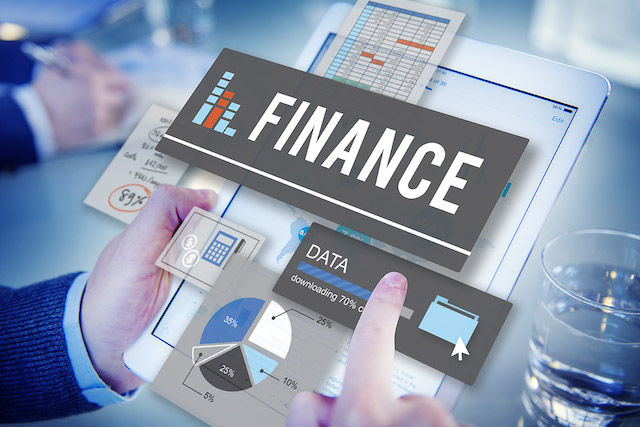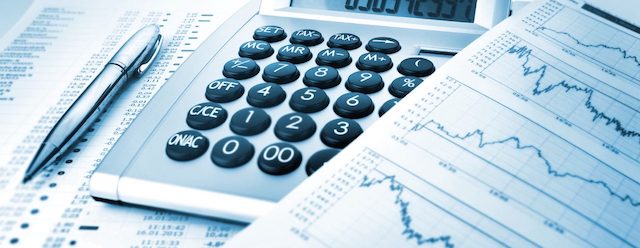
What Is a Degree in Finance?

Finance in the simplest terms is defined as money management. However, in more complicated terms, it centers around the allocation of assets and liabilities over a determined period, it also deals with these actions under conditions of risk. Degrees in finance are offered at all levels, though they are most often available at the bachelor’s and master’s levels as a specialization in a business administration program. The topics you will cover in a finance degree program include financial markets, investing, risk management, and more.
At the associate level, there are not a lot of finance programs, but a business administration degree will cover some of the basics in finance like Macroeconomics, Microeconomics, and Principles of Financial Management. This type of degree will provide you with a very fundamental understanding of finance and can help you land entry-level jobs; however, most organizations prefer at least a bachelor’s degree.
A bachelor’s degree in finance is where you will be able to really start to get your head in the game. This type of degree will get you employment ready, and you will take courses that teach you how to use financial management tools, analyze markets, understand the concepts of investment practices, and more. Some of the courses you may encounter while you’re earning a bachelors degree in finance include Capital Planning, Asset and Debt Management, and Financial Analysis.
A Master of Finance or an MBA in Finance are where you really start to be able to specialize your education and study the areas of finance that you are most interested in. Upper-level positions tend to require this degree as a minimum for consideration for the job. There is a higher emphasis placed on strategy at this level, and you will dig even deeper with courses like Economics for Global Management, Theory of Corporate Finance, Derivatives, and Corporate Governance.
Doctorate degrees put you ahead of the pack because they are the highest academic degrees in any given field. A doctorate degree in finance prepares you for very high-level careers, teaching positions, entrepreneurship, and more. They also focus more on the business management side of things as well as developing strong research skills. Courses may include Organizational Psychology, Fiscal Leadership in a Global Environment, Personal Income Taxation, Money and Relationships, and Introduction to Financial Therapy.
How Hard is a Finance Degree?

No degree program is truly easy, but measuring their difficulty is completely subjective. There are some complicated courses in a finance degree program, and it does take a sharp mind. With that said, we don’t think it’s anything that you can’t handle. Some of the things you need to perform well in the field of finance include strong communication skills, the ability to take initiative, having a passion for learning and being innately inquisitive, being able to solve problems effectively, and it also helps to be a little bit of a people person. You may think of finance as a field where you crunch numbers all day, but the truth is, you’ll spend a lot of time interacting with clients and handling one of the most important things in their lives: their money.
There may be some tough courses along the way. Accounting is a very technical field, and you will have to cover some of that material. You are also likely to have to take statistics courses, algebra, business calculus, probability, or some similar list. There is not a lot of math required, but it is a strong component of the curriculum, and some people just struggle with numbers. You may have to take extra time to study or really push yourself, but it is absolutely worth it to reach your career goals.
Of course, maybe you love math and won’t have any trouble at all! Other complex topics you’ll study include economic theory, analytics, and some psychology courses, among others. How difficult the degree is for you to earn depends on how your brain works. The main thing to remember is that your only limit is yourself when it comes to meeting your goals. If you are struggling academically, plenty of colleges offer student support programs to help you out. In addition, there are thousands of resources online, including free ones, that can give you the boost you need to stay on track.
Accounting or Finance Degree: Which is Better?

Accounting and finance are often lumped together, but they are truly very different. So, to say which one is better is going to be another very subjective question. Which one is best for you? It depends on the career you want, the things you’re interested in, and what type of work you feel like you will excel in.
Finance is the science of planning the distribution of company assets. On the other hand, accounting is the art of summarizing, recording, and reporting all of the transactions that take place within the business. Finance is a career that you can do with a business administration degree, an economics degree, or a mathematics degree. To have a career in accounting, you have to study accounting. It is a very precise and technical field even though the term accounting is incredibly broad.
Both degrees are versatile in that you can fill a variety of roles with them. Finance degrees allow you to focus in broader areas, though, which may allow you to have more diverse career options. The primary functions of someone in a finance career are to source funds, make financial decisions, ensure funds are properly distributed, and to communicate financial information and strategy to company executives. The primary functions of someone working in accounting are to monitor where financial assets are going, ensure contracts are being properly fulfilled, ensure that payments are flowing in and out of the business appropriately, and maintain paperwork and file taxes for a business.
Both relate to money, but they are vastly different. The career growth and salary information are comparable across both fields. Is finance better than accounting? Yes, if that is the career path that appeals to you the most.
What Can You Do With a Finance Degree?

The background you receive when you are earning your finance degree will give you a variety of career options to choose from. You will learn about how businesses function, how to analyze situations and make decisions, the most effective way to build financial strategies and execute them, and so much more. You will also pick up other skills along the way, in different areas of business, using different types of software, and so on. Most of the careers you will be able to get are in the field of business, but there are still plenty of different options out there for you.
You could be a financial planner. Someone in this job is responsible for deciphering market trends and planning ways to use the client’s assets in the most effective way to move them towards the desired outcome. You will have to use what you know about accounting, sales, and communication in order to succeed in a job like this.
You could be a financial analyst. This is one of the more common positions, and the job growth for this area is very positive. A financial analyst researches stocks, bonds, industries, and more in order to help their clients with mergers, acquisitions, bond offerings, restructuring the corporation, as well as corporate expansions. You will need to conduct complex analyses, so research skills, along with being able to dissect financial information, are crucial to this role.
You could take your skills in finance into fields you may not have considered as well. Real estate agents, attorneys, business teachers, credit analysts, and even project managers have landed their careers with a finance degree, and you certainly can too. The best way to make sure that you’re prepared for the career you want to pursue in finance is to talk to your academic advisor and plan a program of study that is relevant to your goals.
What Can I Do With a Doctorate or PhD in Finance?

With a PhD in Finance or some other finance doctorate degree, you are going to be a highly sought after candidate for a variety of jobs because you have the highest level of academic preparation available. You will be recognized as an expert in your field and that is very attractive to potential employers. Because of that, there are not many limits on the job you could do in business if you have a PhD in Finance. You could teach a business-related course at a college or university; you could hold a high-level executive position. The possibilities for you are endless.
There are some more common career options with a PhD in Finance, though. That is what we’re going to touch on here, but this is in no way a comprehensive list! Investment banks, hedge funds, private equity firms, and a host of other corporations are seeking doctoral-prepared finance graduates to fill positions like equity researchers, quantitative analysts, and more.
You could secure a job as an investment researcher. In this position, you would conduct research fixed income investments, work with mathematical models to determine whether or not the company you work for is able to take advantage of arbitrage pricing in areas such as the commodities or credit equities markets, and other related tasks.
You could be a government economist. Your responsibilities here could include analyzing how events affect the national economy, you could influence public policy, and you could work at the state or federal level using your knowledge and expertise to promote the financial health of your community or the country as a whole.
You could take your degree into the private sector and start your own company; you could secure a career at a global economic institution, or devote your knowledge entirely to research. Whatever you aspire to in the field of finance, a PhD in Finance is going to help you to hit the ground running and give you everything you need to climb straight to the top.
How Much Can You Make With a Finance Degree?

It is no secret that finance degrees lead to very lucrative careers. Money makes the world go ’round, as they say. People who have the technical skill required to help that process to continue and foster financial growth from small businesses to entire nations are going to be well-compensated for what they do. From Wall Street banks and insurance companies to financial-planning firms and universities, the career options stretch far and wide — that means that salary does too.
The amount of money that you make is going to depend on the job that you have, your level of education, geographic location, and a host of other factors. The average salary for someone with a bachelor’s degree in finance is reported as $60,000 per year by Payscale. The average salary for finance professionals with a master’s degree is significantly higher at $80,310 per year.
Some common jobs that you could hold with a finance degree and their average salaries are listed below.
- Accountant: $119,000
- Corporate Finance Professional: $117,450
- Financial Analyst: $85,660
- Financial Planner: $88,890
- Investment Banker: between $150,000 and $350,000
- Loan Officer: $63,040
- Management Consultant: $83,610
- Wealth Manager: $94,231
One thing that we would like to note is that these are just averages and some of these careers have incredible earning potential based on your education and experience. Average base salary does not account for any bonuses you could receive from your employer either. Things like benefits, bonuses, commissions, and profit sharing are not part of your base pay, but they do have a significant effect on how much money you make. That additional income that isn’t factored can be upwards of $20,000 in some cases. There is high earning potential in the world of finance if you are driven enough to do so.
 Finance is a very popular degree program given the vital role that graduates play in business. There is some overlap with an accounting degree program, but the career trajectory is different, and you will play another important part in making sure a business is financially sound with this degree. It also has more career opportunities for you to choose from. The career outlook for those with a finance degree is great as well. The Bureau of Labor Statistics projects that the field will grow at a rate of 12% over the next decade, which is a rate significantly higher than the national average. In 2014, there were more than a quarter of a million jobs open in the field.
Finance is a very popular degree program given the vital role that graduates play in business. There is some overlap with an accounting degree program, but the career trajectory is different, and you will play another important part in making sure a business is financially sound with this degree. It also has more career opportunities for you to choose from. The career outlook for those with a finance degree is great as well. The Bureau of Labor Statistics projects that the field will grow at a rate of 12% over the next decade, which is a rate significantly higher than the national average. In 2014, there were more than a quarter of a million jobs open in the field.









